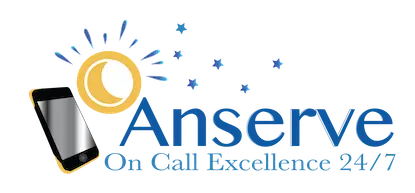HIPAA compliance
Working in the medical field can be rewarding as well as challenging. One of the responsibilities of medical staff is ensuring the protection of patient information. Securing personal health information (PHI) is one of the most critical aspects of the medical field, and it is incredibly important for anyone with access to patient information is properly trained and vetted to ensure they are HIPAA compliant.
What Does HIPAA Compliance Mean for Medical Answering Services?
HIPAA refers to the Health Insurance Portability and Accountability Act. This legislation was passed in 1996 by Congress, and it focuses on setting industry-wide standards in the medical field, affording protections to patients and their families. These standards protect both health and medical information because of the strict criteria for maintaining patient confidentiality.
HIPAA compliance refers to the standards and safeguards put in place by any health organization and its associated staff, companies, business partners and any other technology integrated with patient PHI. These safeguards include network and system security measures as well as personal and professional guidelines that protect PHI.
What are the HIPAA Requirements?
- HIPAA Security Rule: The HIPAA Security Rule establishes national requirements for the safe storage, delivery, and processing of electronically protected health information (ePHI). Because of the opportunity for ePHI exchange, the HIPAA Security Rule extends to all protected agencies and business associates. The Security Rule establishes requirements for the privacy and security of electronically protected health information (ePHI), providing physical, logistical, and technological protections that must be implemented in every healthcare entity. Specifics of the legislation must be documented in the HIPAA policies and procedures of the company. Staff must be briefed in these policies and procedures at least once a year, with documentation to prove it.
- HIPAA Privacy Rule: The HIPAA Privacy Rule establishes national guidelines for patients’ access to personal health information (PHI). Company affiliates are not protected organizations under the HIPAA Privacy Rule. Patients’ rights to use PHI, health care providers’ rights to restrict access to PHI, the contents of Use and Disclosure HIPAA release forms and Notices of Privacy Practices and more are all covered by the HIPAA Privacy Rule. The regulatory requirements must be documented in the HIPAA policies and procedures of the company. All staff must be updated on these policies and procedures at least once a year, and this training must be registered.
- HIPAA Omnibus Rule: The HIPAA Omnibus Rule is a HIPAA addendum that was enacted to protect entities. The HIPAA Omnibus Rule establishes the requirements for business associates to be HIPAA compliant, as well as the regulations governing Business Associate Agreements (BAAs). Before ANY PHI or ePHI may be exchanged or exchanged, a protected individual and a business associate–or between two business associates–must sign a Business Associate Agreement. The parts below go into the specifics of BAAs in greater detail.
- HIPAA Breach Notification Rule: In the case of a data breach involving PHI or ePHI, protected individuals and business associates must comply with the HIPAA Breach Notification Rule. According to this rule, there are two types of violations: minor breaches and meaningful breaches, which vary in depth and scale. All violations must be reported to HHS OCR, regardless of scale, but the precise procedures for reporting vary based on the nature of the violation. The parts below go into the particulars of the HIPAA Breach Notification Law.
What is the Need for HIPAA Compliance?
HIPAA enforcement is more critical than ever as health care services and other institutions concerned with PHI migrate to computerized processes, such as computerized physician order entry (CPOE) systems, electronic health records (EHR), and radiology, pharmacy, and laboratory systems. Health insurance, likewise, has access to claims, treatment schedule, and self-service applications. Although both of these automated approaches improve quality and mobility, they also significantly raise the security concerns associated with healthcare records.
The Security Rule was put in place to secure people’s health records but also encourages protected organizations to use emerging technology to increase the safety and reliability of patient care. By nature, the Security Rule allows protected entities to adopt processes, protocols, and technology that are appropriate for their complexity, operational structure, and risks to patients’ and customers’ e-PHI.
How a Medical Answering Service will Handle Sensitive Information from Incoming Calls to Your Medical Practice
Patients put their health and even their lives in their doctor’s hands. However, maintaining a patient’s privacy should be just as important. HIPAA laws are in place to protect a patient’s right to privacy and to ensure that medical practitioners are dealing with sensitive information in an appropriate manner. One of the ways that medical professionals can ensure that they are securing information accordingly is to exercise best practices when it comes to answering incoming medical calls.
Those answering incoming medical calls must comply with both the privacy and security rules in HIPAA.
- Complying with the HIPAA Privacy Rule – HIPAA privacy rule compliance ensures that personal information is kept confidential, whenever that information is accessed, recorded, or shared. Your medical business should have procedures to seek patient consent and ensure privacy for all medical information including patient demographic information, medical conditions, treatments, and payments. Anyone answering incoming medical calls should be trained to ensure they follow your procedures and know to discuss personal health information.
- Complying with the HIPAA Security Rule – The HIPAA security rule refers to storing personal health information safely. Information needs to be encrypted, protected by strong passwords and firewalls.
What are the Three Types of Safeguards?
There are three different types of safeguards necessary for HIPAA compliance: administrative, technical, and physical. Administrative safety measures include proper training on policies and procedures as well as ensuring the other two safeguard procedures are carried out correctly. Many organizations now employ a HIPAA Compliance Officer to provide further oversight of this important responsibility.
Physical safeguards refer to the physical information and the structure that houses it. Making sure office entry points are secured is the easiest level of compliance you can implement. Having a multi-level security system in place is required to prevent unauthorized individuals from entering a HIPAA compliant environment. Another form of physical safeguards includes access to areas of your organization where electronic equipment is housed. Only authorized employees should have access to these areas of your company.
Since HIPAA was adopted in 1996, However since then, the way in which we do business have changed dramatically. Technical safeguards are necessary to prevent a data breach of PHI. While no organization can claim to be 100% technologically secure, the technical measures put in place have us all operating from the same standard. Technology is highly vulnerable to loss or theft. When interacting with technology, the easiest level of compliance involves having unique usernames and passwords for each employees’ access to PHI.
How to Maintain HIPAA Compliance?
Maintaining HIPAA compliance means conducting extensive training for employees, to ensure they understand both the specific guidelines of HIPAA as well as the importance of preserving and protecting patient health information. At Anserve, extensive training is given to our employees before they answer calls, and their training is updated annually to ensure all are in full compliance with HIPAA regulations.
HIPAA Compliance in Incoming Calls
What exactly is the best way to handle medical incoming calls in accordance with HIPAA standards? First of all, keep calls as short as possible. Anything that is being discussed via phone is subject to HIPAA regulations so it’s important to make sure that any information that is exchanged over the phone is HIPAA-compliant and that interactions are as limited as possible to prevent violations during medical incoming calls. In addition, Anserve has procedures in place that force call agents to log off their computers when they walk away from their workstations and writing down passwords is forbidden.
Is Saying a Patient Name a HIPAA Violation?
Revealing PHI, or Protected Health Information, is a HIPAA violation, so it’s critical that this information is protected at all costs. One way to avoid giving away PHI is to be cognizant of one’s surroundings. While it is not a violation of HIPAA to mention a patient’s name over the phone, you should use the same caution that you would use when in a waiting room. Try not to use the patient’s full name, for instance. This way the patient cannot be easily identified.
Is it a HIPAA Violation to Email Medical Records?
Although it is not considered a HIPAA violation to email medical records, it’s important to take precautions when using email, just as you would for medical incoming calls. Use encrypted email whenever possible to add an extra layer of safety to email transmissions.
How do I Find the Caller Identity?
Before you discuss any private information during a medical incoming call, it’s important to ensure that you are talking to the correct person. Ask the patient for their first and last name, and then ask for at least two additional identifiers, such as date of birth, insurance information, or address and phone number. Make sure you have the patient give you the information, do not provide information to the patient, and ask them to verify.
Can a Doctor Disclose Patient Information?
Under HIPAA laws, a doctor should keep any patient information or records secured and only disclose PHI when granting permission by the patient. HIPAA rules are in place to protect the patient’s privacy and personal information and a doctor must ensure that they are doing all they can to secure patient information.
Can a Spouse Access Medical Records?
Marriage does not necessarily mean consent when it comes to medical records. A spouse may have access to medical records only when a patient gives their doctor or medical provider consent.
Protecting patient privacy and ensuring HIPAA compliance are extremely important. At Anserve, we understand how crucial it is to safeguard PHI. All Anserve Employees are certified HIPAA Compliant.
The medical answering service agents at Anserve understand the HIPAA rules, and Anserve invests heavily to stay at the forefront of changing technology and has a long history of helping healthcare organizations and staying HIPAA Compliant.
Contact Anserve to ask about our medical answering services if your healthcare practice is struggling to stay compliant with HIPAA. Our professional team of highly trained HIPAA-compliant call center specialists can help.
Medical Answering Services FAQ’s
Your business may benefit from medical answering services or business phone answering services. An answering service can assist with order taking, voicemail, paging, setting up appointments, taking messages, answering customer questions, and more. Many provide bilingual service and can keep you connected to your customers in the off-hours. Here are some answers to common questions concerning medical answering services or business phone answering services:
Q: How Does the Medical Answering Service know about My Practice?
A: While setting up your account, the medical answering services team will ask you questions about your business, and store the information. The answering team can view your information, as well as the personalized script you provide, whenever they handle a call from one of your customers.
These services do more than just act like an answering machine — medical answering services can assist with appointment scheduling, appointment reminders and follow-up calls. Your customers will appreciate talking to an informed, English-speaking (or bilingual) human being!
Q: What Benefits do Medical Answering Services Provide?
A: If you receive a large volume of patient phone calls, and your staffing costs are quickly adding up, your medical practice could benefit from medical answering services. Medical answering services can free up your staff and provide a reliable line of communication between your office and patients. Benefits include 24/7 phone answering, appointment scheduling, and messaging. Medical answering services also provide automated on-call scheduling, automated first-ring pick-up with your personalized greeting, automated check-in and check-out, and caller ID on every message.
Can Anserve Help My Business Stay HIPAA Compliant?
The Anserve medical answering service team knows how to handle HIPAA compliance. Working with Anserve means working with a firm that knows your line of work, the call answering service business, and what it takes to maintain HIPAA compliance.

Director of Business Development
With over 25 years of experience, Peter oversees the marketing, sales and account management for Anserve. He is an expert in customer service and strategic business growth, leveraging his knowledge to help businesses optimize revenue using efficient procedures.


